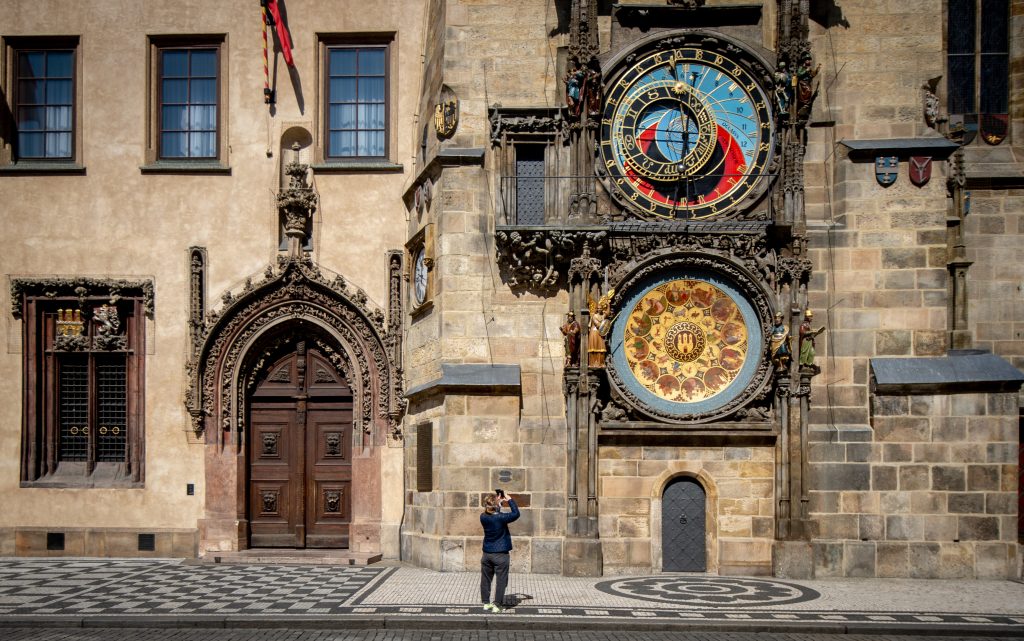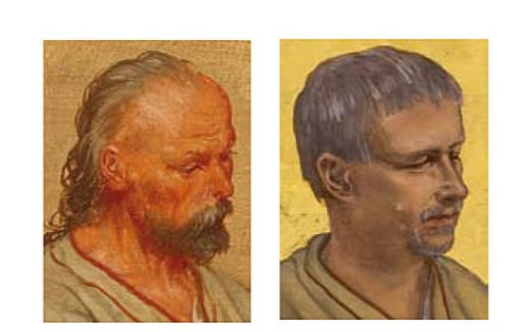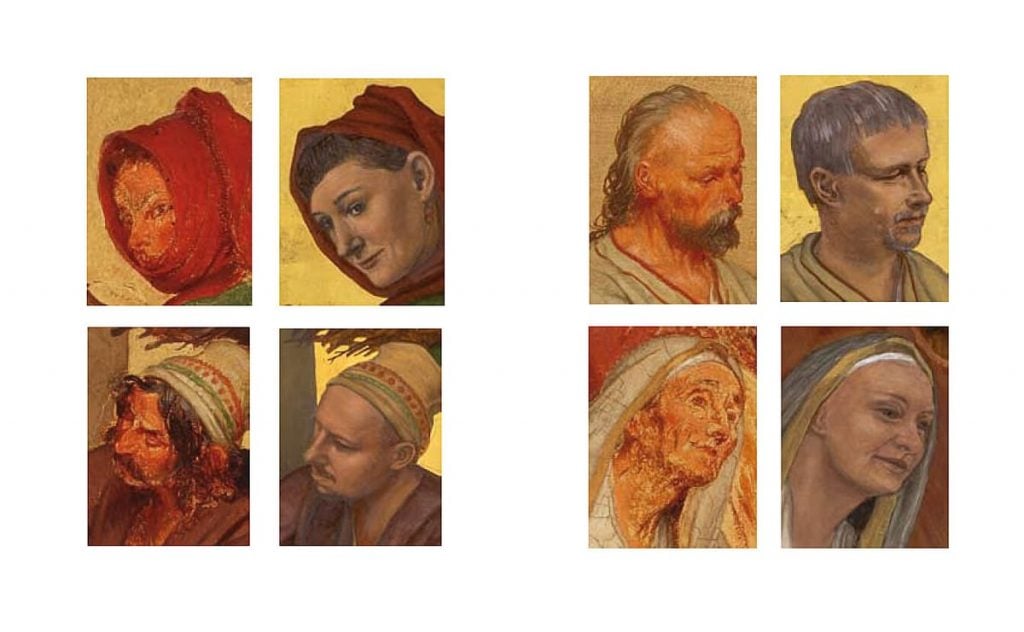Art World
‘What Is Mark Wahlberg Doing There?’: An Artist Gave Prague’s Iconic Orloj Clock a Disturbing 21st-Century ‘Restoration’
A member of a Czech historic preservation group has filed an official complaint.

A member of a Czech historic preservation group has filed an official complaint.

Caroline Goldstein

In 2018, the iconic Orloj astronomical clock that has been the centerpiece of Prague’s Old Town Square for more than 600 years, was unveiled to the public after an extensive £2.1 million ($2.6 million) restoration. But one of its central paintings, a depiction of the months of the year as zodiac signs, doesn’t look right.
A member of the monuments preservation organization Club for Old Prague has filed a complaint with the Czech ministry of culture alleging that the contemporary restoration of the painting, by the 19th-century Czech artist Josef Mánes, is a botched job.
In his 18-page complaint, Milan Patka argues that the artist hired to restore the work, Stanislav Jirčík, has diverged so far from the original as to replace some of faces with likenesses of his own friends, and in other cases changed the ages, genders, and clothing of the figures. In one case, a scene depicting a man with auburn hair in a green coat transformed into a man with jet black locks and a new bushy mustache; a dog in the scene that was once a black mutt, is now a brown-and-white shepherd.

A figure from the original painting, at left, and the new restoration, at right. Courtesy Prague City Hall.
One Twitter user asked, “what is mark wahlberg doing there?” highlighting a once balding old man who now resembles the actor. Another chimed in: “I must say that the gray-hair lady of the unfaithful copy looks a lot sexier than the chestnut-haired original. The painter must have thought of someone he clearly desired.”
“I expected an honest approach from copying the calendar—even the fast painters on Charles Bridge [make] an effort to capture the appearance of the characters and hairstyles,” wrote Patka in his complaint, referring to the artists that sketch portraits for sightseeing tourists.

More examples of the original painting and the new version. Courtesy of Prague City Hall.
“I want to know if [Jirčík] was trying,” Patka told the Guardian, noting that there are “many sketches of the original work, so it is certainly possible to do a copy.”
Jirčík has not responded to requests for comment, but experts who spoke to the Czech website Deník N said it was so clearly not a faithful reproduction that it might be a joke.
Patka’s complaint is currently being investigated by the culture ministry.